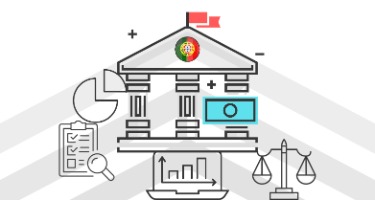Introduction
Parties entering into arbitration agreements ordinarily abide by their contractually chosen dispute resolution mechanism and proceed accordingly. Sometimes, one encounters a counter-party who takes it upon himself to start proceedings in a foreign jurisdiction in breach of an arbitration clause. How does an innocent party restrain such conduct? The Court of Appeal (SGCA) in Sun Travels & Tours Pvt Ltd v Hilton Manage (Maldives) Pvt Ltd (Sun Travels) laid down firm guidance that a party who finds itself in this scenario should act as fast possible to restrain the counter-party by way of an anti-suit injunction (ASI). The SGCA clarified that once a judgment (including one subject to appeal) has been issued in the foreign court, it is too late for an ASI to be sought or obtained in the seat court. The question remains as to when one attempts to obtain ASI relief before a judgment has been handed down in the foreign proceedings. Seeing as an ASI is an equitable relief, and dilatoriness and unconscionable conduct can bar one from obtaining such relief, one should proceed promptly and before the proceedings are too far advanced in the foreign jurisdiction to secure such relief. In other words, move fast (and as soon as practicable) once the breach of the arbitration agreement is discovered, to seek the ASI in the Singapore courts.
Facts
Sun Travels & Tours Pvt Ltd (Sun) is a resort operation that owns a hotel in Maldives. Hilton International Manage (Maldives) Pvt Ltd (Hilton) is a Maldivian incorporated company in the hotels and resort industry.
Sun and Hilton entered into a hotel management agreement in February 2009. Sun was later dissatisfied with Hilton’s performance of the Hotel and gave notice in 2013 to terminate the management agreement. Hilton accepted the termination on the basis that it was a wrongful repudiation of the agreement.
Hilton later commenced arbitration proceedings pursuant to the arbitration clause in the management agreement. In 2013, the ICC Court of Arbitration fixed Singapore as the seat of arbitration. Mid-way through the arbitration proceedings, and after a Partial Award was issued, Sun stopped participating in the proceedings even though it was given several opportunities by the Tribunal to do so. The Tribunal later issued an award ordering Sun to pay Hilton damages amounting to US$20,945,000 plus interest, and US$342,500 of legal fees incurred.
After the Final Award was issued, Hilton commenced enforcement proceedings in the Maldivian courts in relation to the Arbitral Awards. After some procedural hiccups around the proper court to commence the enforcement proceedings, Hilton obtained a judgment in its favour and commenced proceedings in the Enforcement Division of the Maldivian Courts to start the second enforcement proceedings.
Before the appeal in the Enforcement Division was heard, Sun commenced a civil action in Maldives against Hilton. The civil suit essentially concerned the same issues and disputes as that decided by the arbitral tribunal in the Partial and Final Award.
In January 2017, the Maldivian Civil Court decided that it would determine both the procedural and jurisdictional matters at the same time when it hears the merits of the case on Sun’s civil suit. The court later delivered a judgment in March 2017, holding that Sun had made out its claims against Hilton. This March judgment was later relied upon by the Enforcement Division Civil Court to refuse Hilton’s second enforcement proceedings (the March Judgment). Hilton appealed against the March Judgment and the appeal was still pending at the time the SGCA delivered its judgment in the Singapore courts.
In July 2017, Hilton filed an application in the Singapore High Court against Sun. One of the reliefs sought was a permanent anti-suit injunction to restrain Sun from taking any steps in reliance on the March Judgment. The SGHC judge decided in Hilton’s favour. Sun appealed against the order to the SGCA.
- (i) Anti-suit injunction
The SGCA confirmed that the jurisdiction to grant ASI relief is an equitable one. In cases involving an arbitration agreement or an exclusive jurisdiction clause, it would suffice to show breach of such an agreement, and ASI relief would ordinarily follow, unless there are strong reasons not to allow such relief. This is however subject to an important caveat that the court must not feel diffident in granting an anti-suit injunction. For example, this may be as a result of the applicant’s delay in not seeking ASI relief promptly, resulting in the foreign proceedings being too advanced.
In the judgment, the SGCA justified its position on two bases. First, the longer the delay and the more advanced the foreign court proceeding becomes, the more unlikely Singapore court is to grant an ASI given the time, effort and judicial resources that will be wasted by the abandonment of the foreign proceedings, following the grant of an ASI. Second, what matters is the extent to which the delay has allowed the foreign court proceedings to have progressed. Pertinently, the SGCA clarified that delay cannot be justified on the basis that jurisdictional objections are being made in the foreign court proceedings. Indeed, allowing such conduct on the part of the applicant, would effectively give the applicant “two bites at the cherry”; to encourage one to seek an ASI when its challenge in the foreign court has failed.
- (ii) Anti-enforcement injunction
The SGCA then went on to expound on the limited circumstances seen to be appropriate to grant an anti-enforcement injunction even after a judgment has been issued by the foreign court.
To this end, the authorities speak with one voice on the need to exercise great caution in granting such injunctions, because of the way they interfere with foreign proceedings.Two aspects stand out in this regard. First, such an injunction would preclude other foreign courts from considering whether the judgment in question should be recognised and enforced. Second, allowing such relief would be an indirect interference with the execution of the judgment in the jurisdiction where the judgment was given and where the judgment can expect to be obeyed.
The SGCA surveyed the considerations and cases where anti-enforcement injunctions have found to have been justified and concluded that they are few and far between and include (1) where the judgment has been procured by fraud in the foreign jurisdiction or (2) where the applicant had no means at all of knowing that judgment was being sought against him until it was served such as (a) where the judgment was obtained too quickly or (b) secretly to enable an injunction to be obtained.
- (iii) Declaratory relief
On the facts, as elaborated on above, the SGCA did not approve of the applicant’s conduct in seeking an anti-suit injunction only after the foreign proceedings had progressed substantially (even leading all the way to a judgment).
Notwithstanding that, the SGCA clarified that, as the court of the seat of arbitration, it has the discretion to grant declaratory relief (and did so grant such relief) to signify to the foreign court that the defendant breached the arbitration agreement by instituting civil proceedings in the foreign jurisdiction when arbitration award(s) on the same dispute had already been issued. In the SGCA’s words “these orders serve to uphold the integrity of arbitration agreement and the awards rendered on the basis of such agreements.”
Key Takeaways
This decision is significant to any party who has entered into an arbitration agreement, with Singapore as the seat of the arbitration. In light of Sun Travels, when the other contracting party has, in breach of the arbitration agreement, instituted civil proceedings in a foreign jurisdiction, the aggrieved party must act with speed in making an ASI application as soon as possible after it discovers the existence of the foreign proceedings. In particular, it should not seek to resist the foreign proceedings on the basis of an arbitration clause and only after that fails, move to restrain the counter-party by commencing ASI relief in the Singapore courts. The SGCA has clarified that after judgment is issued in the foreign proceedings, ASI relief is almost impossible save in very exceptional circumstances (as enumerated above).
The question remains where foreign proceedings have commenced, but the aggrieved party applies for an anti-suit injunction before a judgment is issued. While this situation was not specifically dealt with by the SGCA, the courts will conduct the usual balancing exercise by considering a multitude of factors, including how far advanced the foreign proceedings are, whether the aggrieved party’s conduct in the foreign proceedings is inconsistent/incompatible with his rights to arbitrate the dispute under the arbitration agreement, reasons for the delay/not seeking the injunction earlier and whether there is any dilatory or unconscionable conduct on the aggrieved party that should deprive him of the equitable relief.
Our advice is simple: time is of the essence if the counter-party commences foreign proceedings in breach of an arbitration clause; move as fast as possible and as soon as practicable once you discover the breach of the arbitration agreement to seek the ASI relief in Singapore.
































